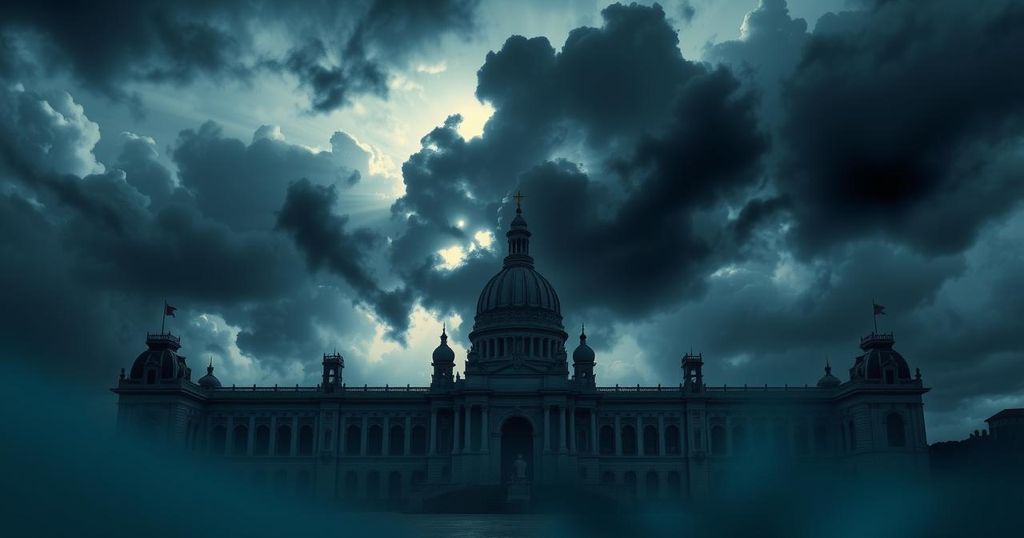Sudan’s military has retaken the Republican Palace in Khartoum from rival RSF forces, marking a significant gain in nearly two years of conflict. Information Minister Khaled al-Aiser confirmed the military’s success, emphasizing its symbolic importance. The ongoing violence and humanitarian crisis deepen the challenges faced by civilians as fighting continues across the nation.
On Friday, Sudan’s military announced the recapture of the Republican Palace in Khartoum, a significant stronghold of rival paramilitary forces, concluding nearly two years of conflict. Videos shared on social media depicted military personnel marking the date as the 21st day of Ramadan, with an officer confirming their presence inside the government seat. The palace, partially in ruins, echoed with the sounds of soldiers chanting, “God is the greatest!”
Khaled al-Aiser, the Sudanese information minister, confirmed the recapture on social media, stating, “Today the flag is raised, the palace is back and the journey continues until victory is complete.” This development signifies both a symbolic and strategic victory for the military, under General Abdel-Fattah Burhan, as the Rapid Support Forces (RSF), led by General Mohammed Hamdan Dagalo, have largely been expelled from Khartoum.
Despite surrendering the palace, sporadic gunfire was reported across the capital, though it was unclear whether it stemmed from ongoing clashes or celebratory events. The RSF did not publicly acknowledge their loss, and fighting is expected to persist as they maintain territorial control in other regions of Sudan. Recently, the RSF alleged they captured the strategic city of al-Maliha in North Darfur, while the military has not confirmed this loss.
The conflict has resulted in a severe humanitarian crisis, with over 28,000 fatalities and millions displaced. The harsh reality includes families resorting to consuming grass to survive amid famine conditions. Historically, the Republican Palace has witnessed significant moments in Sudan’s history, including the rise of the independent flag in 1956 and has served as the central office for government officials.
Sudan has endured chaotic instability since the downfall of longtime president Omar al-Bashir in 2019, followed by a faltering democratic transition due to a military coup in 2021. Since January, Burhan’s forces have progressed against the RSF, facilitating substantial advances and contributing to increased civilian harms. Allegations of human rights abuses have surfaced against both the military and RSF, which they deny, but the United States has implicated RSF in genocidal acts against ethnic groups.
In conclusion, the recapture of the Republican Palace by Sudan’s military represents a pivotal moment in the ongoing conflict and reflects the precarious situation in Sudan as it grapples with a severe humanitarian crisis. The continued clashes indicate that while the military has made notable gains, the fighting is far from over. Both factions, the military and the RSF, face critical accusations regarding human rights violations, compounding the complexities of peace and stability in Sudan in the aftermath of political upheaval.
Original Source: www.haltonhillstoday.ca




